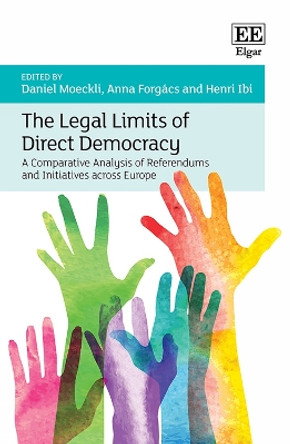Hardly known twenty years ago, exclusion from public space has today become a standard tool of state intervention. Every year, tens of thousands of homeless individuals, drug addicts, teenagers, protesters and others are banned from parts of public space. The rise of exclusion measures is characteristic of two broader developments that have profoundly transformed public space in recent years: the privatisation of public space, and its increased control in the 'security society'. Despite the fundamental problems it raises, exclusion from public space has received hardly any attention from legal scholars. This book addresses this gap and comprehensively explores the implications that this new form of intervention has for the constitutional essentials of liberal democracy: the rule of law, fundamental rights, and democracy. To do so, it analyses legal developments in three liberal democracies that have been at the forefront of promoting exclusion measures: the United Kingdom, the United States, and Switzerland.
This book explores the implications of banning people from public space for the rule of law, fundamental rights, and democracy.About the AuthorDaniel Moeckli is Assistant Professor of Public International Law and Constitutional Law at the University of Zurich and Fellow of the University of Nottingham Human Rights Law Centre. He is the author of Human Rights and Non-discrimination in the 'War on Terror' (2008), for which he was awarded the Paul Guggenheim Prize, and co-editor of International Human Rights Law (2014). Before joining the University of Zurich, he was a Lecturer at the University of Nottingham and worked for the International Bar Association, Amnesty International, and the Supreme Court of the Canton of Berne.
Book InformationISBN 9781107154650
Author Daniel MoeckliFormat Hardback
Page Count 578
Imprint Cambridge University PressPublisher Cambridge University Press
Weight(grams) 990g
Dimensions(mm) 235mm * 160mm * 35mm






